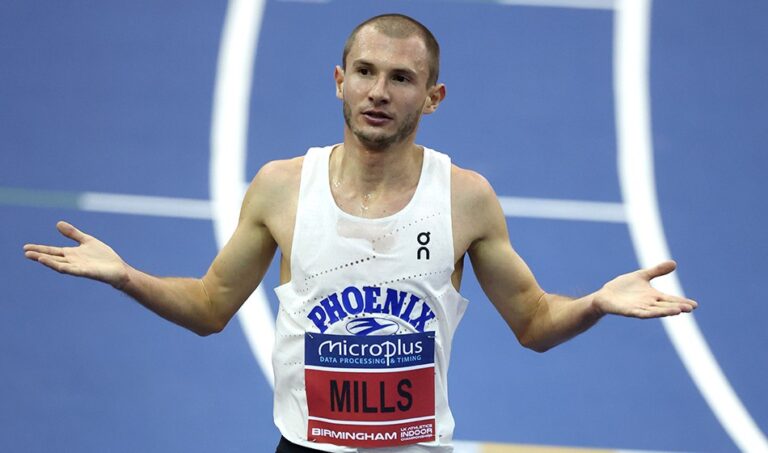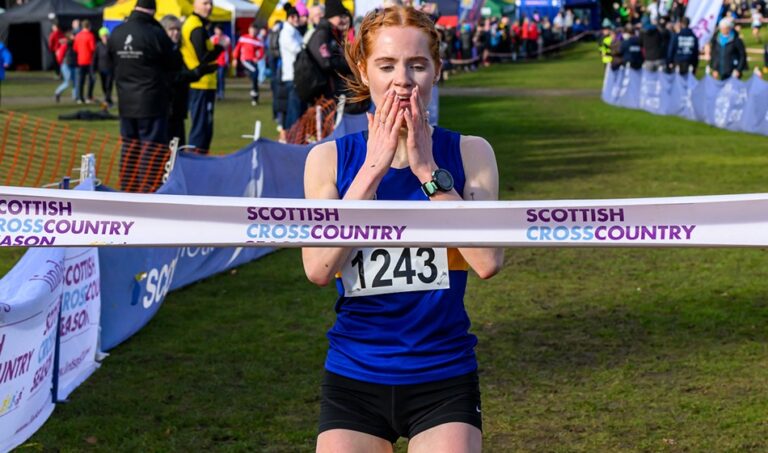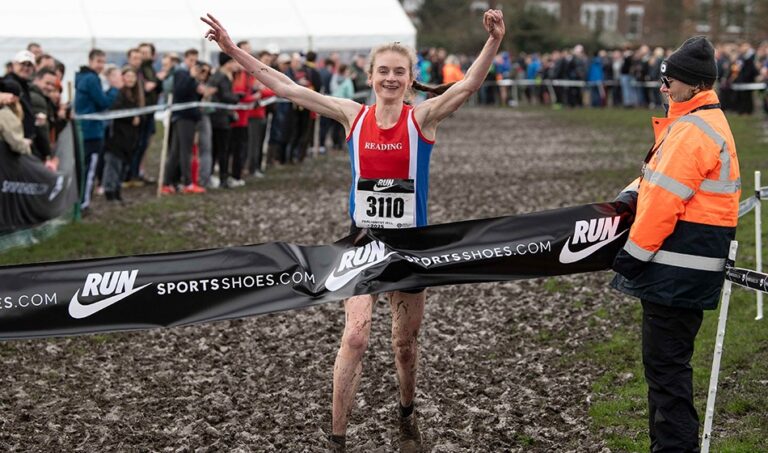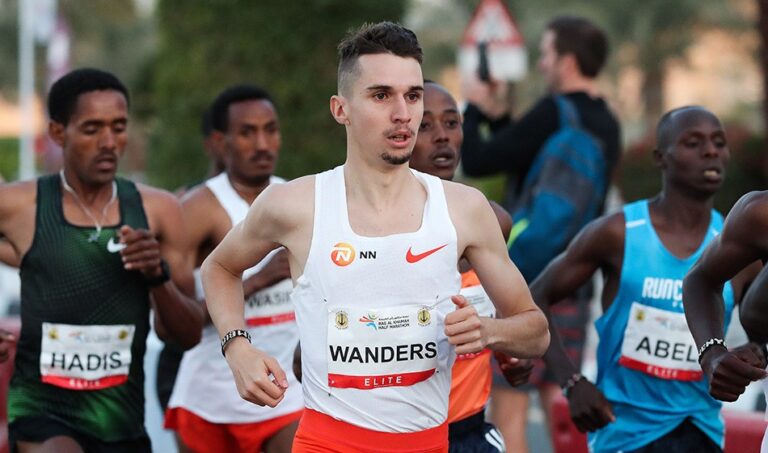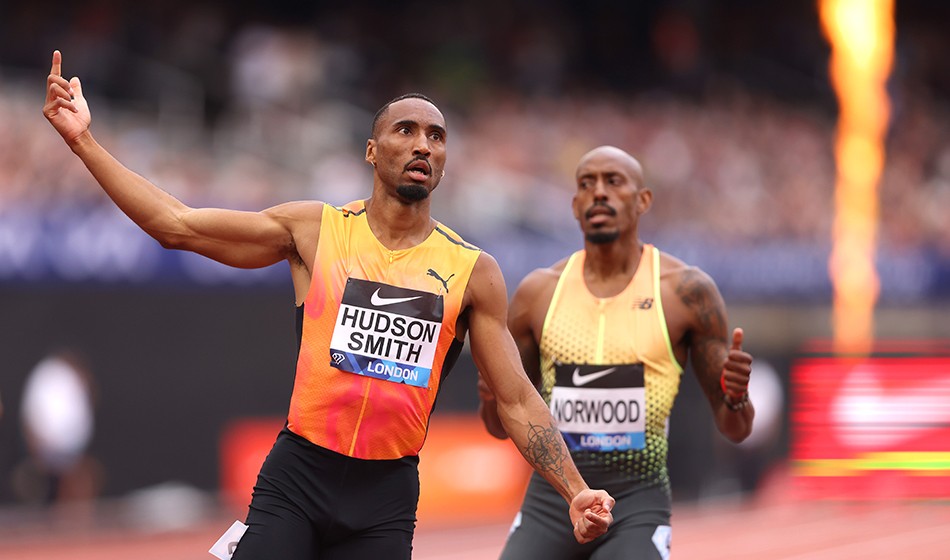
For years the British 400m runner was only able to show glimpses of his talent but, as Katharine Merry writes, 2024 turned him into global force
I’ve known Matt Hudson-Smith since I first heard about the tall, gangly kid from Wolverhampton who started at Birchfield Harriers Academy aged nine. So it says a lot that, when it comes to his performances on the track, 2024 feels like the first year where we’ve truly seen the real him.
In years gone by, there have been glimpses of undoubted potential – perhaps a one-off performance that hinted at what might be possible or a time that showed he was heading in the right direction – before injury would strike again and the momentum would be lost. He’s always been fragile but everybody knew what he would be capable of doing if he could stay in one piece. This year, even with some niggling issues, look what happened!
He went into 2024 with a PB of 44.26, the then European record, but proceeded to run quicker than that five times and lower it to 43.44 in the Olympic final where he came so very close to the gold medal as Quincy Hall pipped him with 43.40.
Matt could have been left broken-hearted by that race but, in the conversations I’ve had with him since, he has seemed more excited about the next Olympic cycle and what might be possible rather than seeming down or dejected. He has brought up the topic of LA 2028 repeatedly already and it’s very clear where his focus lies. I’m excited about these next few years for him, too, because I think there’s a lot more to come.
How has he taken such big strides forward? I think it’s a big combination of things.
Firstly, there’s no doubt in my mind that his move to the USA, where he has been coached by Gary Evans in Florida since 2022, has made a big difference. Then there’s being able to hold those injury issues at bay with the help of extra strength work in the gym, not to mention eating properly. The fact that he now also has a very settled personal life can’t be underestimated, either. Everyone remembers how openly he talked a couple of years ago about the dark times he suffered mentally and how he contemplated taking his own life. Now he is a happily married man who recently turned 30 and is in such a settled place with everything.
Even bearing all of that in mind, it’s still quite a feat to remove the chunk of time from his PB that he has managed to do this year – and that comes down not just to the talent of the athlete but good coaching, too.
Matt Hudson-Smith (Getty)
With the 400m, every year you’re adapting to what you’ve done during the previous season and then what you’ve gained in the winter. That means that every year you have to look at the 400m slightly differently. All of a sudden, Matt has more speed than ever, which means the first part of his race, or the set-up of his race and the first 200m, is going to be different.
To give you an example, the Matt of 2022 lost the gold medal in the Commonwealth final in Birmingham because he went off too fast, but the Matt of 2024 maybe would have gotten away with doing that because his base speed is quicker.
He and Gary will have started this campaign working off the fact that Matt’s base speed is at around 44 seconds and they will have tweaked that during the course of the season.
To be able to do that successfully though, the athlete has to put complete faith in their coach, trust them 100 per cent, listen to what they’re being told and make those adjustments. When you’ve got a proven coach who has a history of getting people ready to run fast when they need to, if you listen then you’ll easily drop those kind of times.

Matt Hudson-Smith (Getty)
Matt’s performances didn’t really surprise me and they have been a great example of good coaching, good athlete management and also good listening on the part of the athlete. It’s a relationship that is clearly working very well but it has taken time. Matt hasn’t always been the best listener and I’m sure there will have been a few times in the past couple of years where Gary will have had his head in his hands but the message is getting through now and of course Matt has matured, too.
Pain can also be a very useful teacher. How quickly you go through halfway is crucial to the outcome of a 400m and I can tell you, from personal experience, if you get it wrong then it really hurts! I did it once and never made the same mistake again.
The majority of my training was geared around that time I needed to hit halfway in during a 400m race. You have to ingrain that race pace and do it again and again. But then, of course, if things start working then that pace becomes easier, you become quicker and that’s where you have to start making the kind of adjustments I mentioned.

Matthew Hudson-Smith (Jerry Sun/PUMA)
It’s a difficult art to master. Go too fast by even a couple of tenths of a second and you can be in big trouble but, on the flipside, go a fraction too slow and you’re going to have too much ground to make up when it comes to the crunch. For some people, it can be the difference between winning and coming fourth or fifth.
Balancing the scales was how we used to look at it and Matt’s actually a good example of how long it can take to perfect the skill. If you look back 10 years, he made a big breakthrough in winning the silver medal at the 2014 European Championships in a then PB of 44.75. His best time from the season before was 48.76 indoors! All of a sudden the baseline changed massively and it’s only now that we’re starting to see him really consistently chipping away at his times.
He is clearly in the right environment with Gary now but he has also been helped along the way by the foundations that were laid for him at Birchfield by coaches such as Tony Hadley and Sharon Morris. Don’t forget that Matt was a very good footballer – academy standard with Wolverhampton Wanderers – and had to make a choice. We should be thankful that he opted for track and field.

Matthew Hudson-Smith (Jerry Sun/PUMA)
Having done that, I know Matt did feel a certain amount of pressure to prove it was the right call and that made those years when everything wasn’t quite going to plan for him on the track even harder to bear.
But look at the athlete who stands in front of us now. He produced the fifth-fastest run of all time in Paris and people are genuinely talking about the possibility of him being able to run 43.00. To me, there’s no reason why he couldn’t take down Wayde van Niekerk’s world record of 43.03. Could he be the first one to go under 43 seconds? Why not? It’s a big jump to make but he has shown he is capable of making great progress.
What he’s done this year has been outstanding and him winning the AW British male athlete of 2024 award is richly deserved but, as I say, I think there’s more to come. I know he wants part of the stand at Alexander Stadium to be named after him. We can maybe talk about that after LA but let’s see what that incentive might spur him on to! I think we’re just seeing the start of Matt Hudson-Smith 2.0.

Olympic 400m final (Getty)
Record-breaker
Matt Hudson-Smith ran faster than his previous 400m European record of 44.26 no fewer than five times in 2024.
May 30: 44.07, Bislett Games, Oslo
July 20: 43.74, London Athletics Meet
August 6: 44.07, Olympic semi-final, Paris
August 7: 43.44, Olympic final, Paris
August 22: 43.96, Lausanne Diamond League
How they train: Sarah Astin


